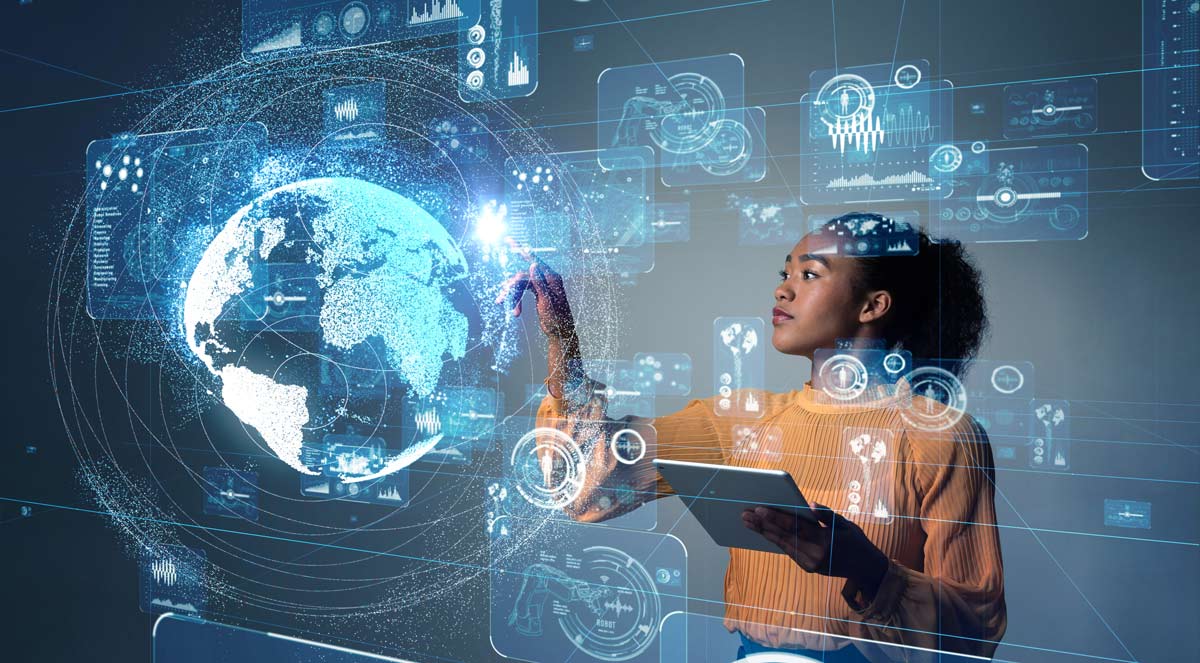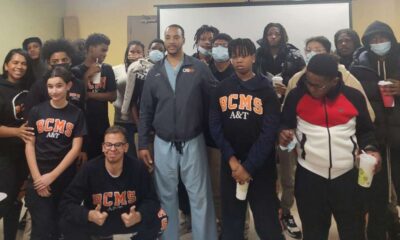Tech News
AI in the Spotlight at the 53rd Annual Legislative Conference

By Mary Alice Miller
Building on the theme “AI Renaissance: Navigating our Future,” the 53rd Annual New York State Association of Black, Puerto Rican, Hispanic, and Asian Legislative Conference hosted several workshops that dispelled myths and fears around the new technology and its impact on people of color.
“In recognizing the profound impact of Artificial Intelligence on our daily lives, we are committed to exploring its implications and charting a course forward in this ever-evolving landscape,” Assemblywomen Rodneyse Bichotte Hermelyn and Alicia L. Hyndman said in a welcoming statement.
Artificial Intelligence workshops included “Digital Equity: Increasing Equitable Access to Computer Science Literacy in the AI Era,” “Public Sector Use of AI Technology: The New Age of Government and Constituent Services,” Toward an Equitable and Just Technology: Protecting Civil Rights and Privacy in the Digital Age,” “Addressing the Gender Pay Gap in the Age of AI and Tech for Black and Brown Women in NYS,” and “Promoting America’s Competitiveness Through Inclusive STEM Education.”
The Women’s Empowerment Brunch hosted the Dr. Una Clarke Lecture Series, focusing on the Future of Workforce and AI.
Councilmember Nantasha Williams, District 27 in Far Rockaway said, “I remember life before the internet. A lot of people were very scared of the internet. Then, there was an explosion of an entire industry that existed but didn’t exist in the same way that we know it now. The technology continued to grow and expand. So many people who were early adapters to the internet and the World Wide Web are making millions of dollars right now. Regarding AI, I want to lean into it, I want to be an early adapter. Let’s all be early adapters. Let’s be critical of the platform to ensure it serves everybody in every community.”
Dr. Jacqueline Maracheau, Chairwoman of Episcopal Health Services, spoke of the ubiquity of AI in health care. “We don’t know that AI has been in health care for quite some time. It is ingrained in everything we do and has been propelled by Covid-19,” said Dr. Maracheau. “Right now, my Apple watch tells me I have a fast heart rate. AI helps make diagnoses faster, better, and with more precision.”
Kenya Handy-Hilliard (McDonald’s) told the audience about a partnership between McDonald’s and Google. “We are going to use technology in the cloud to manage the three-legged stool with more efficient communication: the corporation that manages real estate and brand, the restaurants, and large-scale suppliers,” said Handy-Hilliard. “In the back-of-house, AI will manage the machines better, faster, and safer. For instance, if there is an adjustment needed on the oil, then AI will automatically fix it and create an alarm system so that employees can attend to it.”
Beauclarine Thomas, (Facebook/Meta) said the tech company has a multi-faceted approach to AI.
“Engineering and research and development help build better products with AI,” said Thomas. “Our safety and community standards can quickly employ AI to flag content that violates our standards. Sometimes AI takes down content that shouldn’t. It then goes through a review.”
Felecia Webb, Partnership on AI’s chief strategy officer, gave an overview of the challenges and opportunities presented by artificial intelligence. “The adoption of AI is spreading fast.
AI is positioned to upend human capacity and increase our productivity, but we also know that since Covid, we had about 800,000 women leave the workforce. It is predicted that 12 million jobs here in the U.S. will be replaced by AI,” said Webb. “AI is not bringing all doom and gloom. There will be a 23% increase in STEM jobs in addition to increased financial investments in the global economy.”
Webb called AI a revolution. “There are opportunities being created. For instance, 4-year degree requirements are being waived so that there will be skills-based jobs with training. Future proofing those jobs requires critical thinking,” Webb said. “There is an uptick in women entrepreneurs. AI has helped level the playing field. The AI revolution can create immense wealth just like the Industrial Revolution.”
Webb cautioned, “Before we get to AI Utopia, we have to address the wealth gap, skills gap, and the digital divide. We have gaps in AI understanding and AI policy.” She concluded, “Thinking of human values and human dignity, we have to make sure that companies are using human-centered AI development, an ethical framework, and establish regulatory standards to make sure AI has justice, equity and shared prosperity.”
“AI is a powerful tool. College students are using ChatGPT to do first drafts of every paper they are ever going to write,” said NYS Senator Kirsten Gillibrand.
Speaking of current issues, Gillibrand said, “AI also comes with a great deal of risk and fear. Computer-generated images of famous young women are a scourge. AI-generated pictures of them have been used to harm them. For some women, it feels like an assault, a violation of their human dignity. Women, including women of color, will be targeted and disproportionately harmed by the use of AI in this way.”
Gillibrand added, “We as legislators and advocates have to fight against it because we are the only ones who will be protecting ourselves. There is currently no regulation of AI. I put together legislation that would create a Data Protection Agency, specifically to regulate Web2, Web3, and AI, so that smart people can provide oversight and accountability of these industries.”
Referring to some notable tech companies, Gillibrand said, “They do not have our best interests at heart. Their interests are making money. For school-age children, the internet has become a place of harassment where their image is constantly being assaulted. These platforms could care less. They will promise to protect our kids, but the truth is they will take our children’s data and use it against them.”
Gillibrand ended her remarks by issuing a challenge to the women in attendance. “I hope that women, mothers, and grandmothers of society can see these problems and fight against them as hard as we can,” she said. “We should make sure we are informed. The more we know about the challenges of oversight and accountability for AI, the more powerful our solutions can be.”













